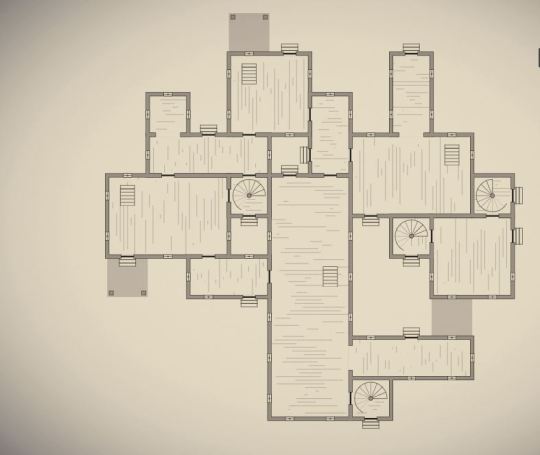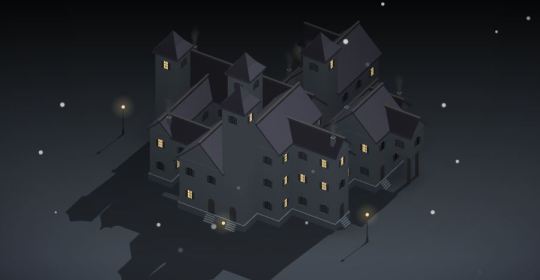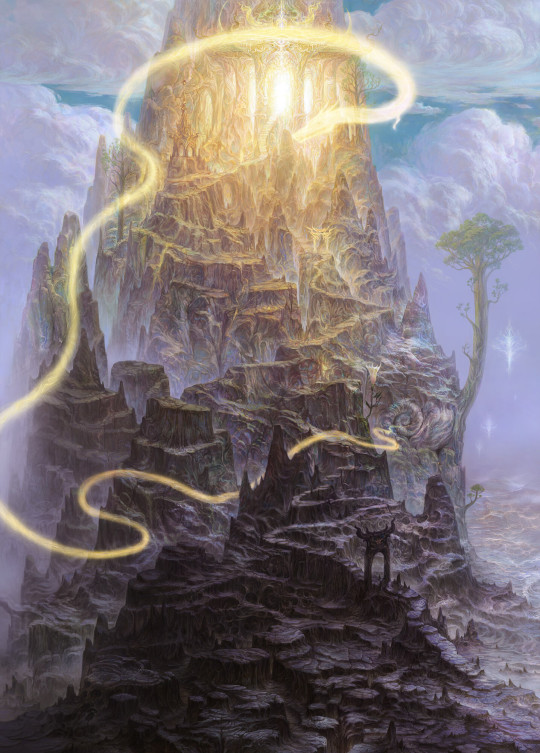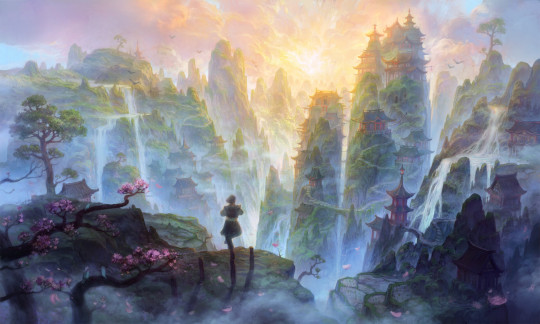Text
I haven’t been on tumblr in a WHILE but I am pleased to say that as of today, October 12th, I am blessed to see 20 😌❤️
3 notes
·
View notes
Note
What's your advice on writing a strong, solid chapter one? Something that will grab the reader's attention and make them beg on their knees for more?
Tips for Writing a Strong First Chapter
Note: in the examples, I’m using the second chapter as Harry Potter rather than the first, which was really more of a prologue.
1. Create a “snapshot” of your character’s normal life…
One of the most important things you can do in the first chapter is give your reader a sort of “snapshot” of your character’s life before the the inciting incident turns everything upside down. Otherwise, if we don’t know what their life is like before everything changes, the inciting incident won’t be a change. It’ll just be something that happens.
In Twilight, we saw Bella being the run-of-the-mill daughter of divorced parents. In Harry Potter, we saw Harry being the unwanted and much-maligned ward of muggle relatives, while struggling with emerging wizard powers. In Star Wars, we saw Luke being the bored farm boy, longing for heroism and adventure. In The Hunger Games, we saw Katniss taking care of her mom and sister by hunting for extra food for them with Gale.
2. Show us who they are–show us their strengths and their flaws…
Most stories feature a protagonist who changes in someway throughout the course of the story. This is the character arc, and it can either be positive (the most common) or negative. Positive story arcs stem from the character’s flaws that are established at the beginning of the story. While they have strengths, too, it’s the flaws that dominate and make their lives such a mess that the reader is anxious to see how their lives will change. The character will overcome those flaws through the events of the story, so in the end the reader can marvel at how far they’ve come and how much better their lives are as a result of this change. In a negative arc, it works in the exact opposite way. Sometimes there are static arcs, where the character doesn’t change but changes someone around them or their environment, and sometimes you get a little hybrid of both.
In Twilight, we see a girl who’s a little selfish, a little closed off, and very codependent. In The Hunger Games, we see a girl who feels helpless against the oppressive government making her life, and the lives of everyone she cares about, a living hell. In Star Wars, we see a boy who’s cocky and idealistic.
3. Show us who and what matters in their world…
Another important element that should be introduced in the first chapter is who and what matters to the main character. These are the initial stakes–the thing that motivates them into action when the world turns upside down. In some cases, the world turns upside down because something happened to them.
In Twilight, we meet Bella’s mom and dad, but in many ways, the absence of anyone else here is part of what serves as motivation for Bella to want her life to change and to want to belong to something bigger than herself. It’s much the same in Harry Potter, where the only people who really matter to him are people who died when he was a baby. In The Hunger Games, we meet Katniss’s mom and sister, her best friend Gale, and we learn about Katniss’s father and Gale’s family, and the boy with the bread. In Star Wars, we meet Luke’s Uncle Owen and Aunt Beru.
4. Show us their world…
Part of the point of the inciting incident is that it’s going to change the known world for the main character. This really dovetails with #1, because their normal life happens within this world. In some stories, a character’s “world” might be their work and home life or their home and school life. In other stories, their “world” might be the small village they live in and the plagued-by-evil-king kingdom the village is a part of.
In Twilight, Bella’s world was uprooted right at the beginning and exchanged for the tiny, perpetually overcast town of Forks, Washington. In The Hunger Games, Katniss’s world was District Twelve and the oppressive Capitol beyond. In Star Wars, Luke’s world was a moisture farm on the desert planet of Tatooine, part of a larger Civil War-wracked galaxy.
5. Start the story when something interesting is happening…
We often hear the advice “start in the middle of the action” or “begin the story with action” and this is often misinterpreted, either to mean you should start with the inciting incident or start with a big car chase or heart-pounding battle. Neither of which is true. Beginning the story with action just means you should start the story with something interesting happening rather than with a big info dump. That doesn’t mean you can’t include exposition in your opening, but weave the exposition into something interesting happening.
In Twilight, the story opens with Bella being dropped off at the airport by her mom so that she can move to Washington to live with her dad. In The Hunger Games, the story opens with Katniss getting ready to go hunting with Gale, then walking through her district on her way to meet him. In Harry Potter, we see Harry and the Dursleys getting ready for Dudley’s birthday party.
If you hit all five of these points in your first chapter, not only can you be sure to create a strong first chapter from which to launch the rest of your story, you can be sure your reader will have everything they need to start getting invested in your main character and the world around them. :)
433 notes
·
View notes
Text
The amount of changes I’ve made to my series in the past month+ ever since I decided I had to rewrite TTG’s outline...the world is absolutely not ready for how great my series will be but I look forward to the day I can share it with everyone, everywhere ❤️
This shit is gonna be amazing!
#amwriting#writers on tumblr#writeblr#amoutlining#worldbuilding#worldbuilding wednesday#also it's been a while LMFAO#don't know how much I'll post here because i feel like im outgrowing this website#but we'll see#about my writing
5 notes
·
View notes
Text
You know what I would really want from my writing? Engagement. Discussions in the comments. Having people talk about what happens next and why these characters act this way, who is in the right and who is in the wrong. Connection.
Publishing and money, sure, one day when I invest in all the marketing and audience building, which seems pretty far away rn. Long time carrer and branding and bla bla bla.
Rn I crave readers and direct connection to readers. A platform to watch them, to communicate with them, to see them react. Published books get contact mostly through reviews (if they don’t have giant fan pages on social media) and how many readers review? Publishing in magazines or with short stories is also so distant and one-time, you don’t know who thought what.
Where am I supposed to go? What am I supposed to work on, to find the right platform or community, where people are thinking about the same issues and would enjoy my stories and engaging with them?
209 notes
·
View notes
Text
Sometimes I really think writers must be crazy. Writing doesn’t pay off at all most of the time:
You pretty much have to beg other people to read what you invested time and hard work in to create
Selling and marketing your writing requires a total seperate set of skills and time investment to build/find a suitable audience
You create from the heart naturally the things personal and important to you, so rejection and being ignored hurts much more than by most other hobbies/products
Writing is incredibly hard to judge and meassure for quality, because of how individual taste is with art.
It’s incredibly hard to notice and measure your own progress and improvement
It’s much more exhausting to consume than movies, music or images, which gets all the more difficult with the shorter attention spans in the modern digitalized era
Since it’s so hard to monetize you have to face the society or your close enviroment, family and friends questioning the value of an activity that doesn’t translate into immediate visible results and money
Lots of activities crucial for writing like researching, reading, daydreaming, outlining, note taking, doodling, meta writing is considered “unproductive” because again, no immediate tangible visible results
No instant gratification with this hobby. You know how long it takes from a spark of idea to a complete work? Ugh
So people who keep on loving writing and making up stories in their heads are total heroes that totally get more from the internal value of writing like creative expression, processing of emotions, building self-awareness and becoming consious of living, the sheer fun of creating and finishing something and being in control of your own world and characters…which is really fascinating, beautiful and gives me hope for humanity
3K notes
·
View notes
Text
It kinda sucks being someone who is so easily overwhelmed because sometimes I want to try out new word processors/apps/websites when working on my novels but branching away from Microsoft Word always tends to overwhelm me bc some of these knockoffs will have A LOTTTT goin on at the screen at once. and I can’t take it 😭
like I was trying to get through the Scrivener tutorial but barely 5 minutes in and I had to stop because I felt like crying LMFAO so like always I will be sticking to MS Word and MS OneNote for all my writing and note-taking endeavors, which is absolutely fine, nothing wrong with sticking to what you’re comfortable with, but just sometimes I wish I had the mental capacity to try other things 😭
#writing#not this being my first post after having been away for hella long LMAO#but yeah#my brain cant handle other shit omg#and I've been using Word since I was like 12 so 😭#this shit is ingrained in me#writers on tumblr#writeblr#writing apps#microsoft word
5 notes
·
View notes
Text
Random mansion generator


The Procgen Mansion Generator produces large three-dee dwellings to toy with your imagination, offering various architectural styles and other options. Each mansion even comes with floorplans:
https://boingboing.net/2019/07/12/random-mansion-generator.html
231K notes
·
View notes
Text
i love reading very very late at night because that’s when the lines between reality and fiction blur and everything becomes a fever dream and you can properly disappear into the pages
12K notes
·
View notes
Text
say it with me: you are a good writer and you deserve every inch of success in the world
960 notes
·
View notes
Text
Magic Costs
One of the primary tenets of a good magic system is the existence of some sort of cost for that magic being used. There are numerous ways to do this, and I can’t list all of them here, but here are some main ways of doing this:
Finite resources: In this case, a character has a set amount of magic they can access, and there simply is no more magic that they can use. Generally in these cases magic is renewable and can be recharged through ritual, rest, or even just time. It can be written so a person can increase their magic reserves through practice, in the same way that a person can get more muscle, but you don’t have to go down that route.
Exhaustion/toll on the body: In this case, a person doesn’t necessarily have a finite amount of magic that they can theoretically use, but using magic draws from their own physical resources. This is often down in the form of exhausting a person, but you can also have it take any other sort of toll on a person’s body. This can also be done in conjunction with the finite resources, as with chakra in Naruto, where a person has x amount of chakra and the more they use, the more exhausted they get. You can either have automatic shut-off points (a person will pass out before they use enough to kill them) or make it so characters have to make sure they don’t actually kill themselves using too much magic.
Requires sacrifice: In this case, an internal or external sacrifice is required to do magic, or to do powerful magic. This is often used in ritual magic, in part because sacrifices generally take time, but if you can figure out how to make a sacrifice part of an immediate magic system, that can work to. A sacrifice in this case can be blood, a memory, a life, or whatever else you want to make it.
Requires outside object: In this case, the person has to have/be using some sort of outside object (a wand, a staff, an amulet, etc.) to do magic. This is more of a restriction than a cost, but you can have the object be limited-use only, where either the magic needs to be renewed after a certain amount of use or it’s burned through entirely.
Toll on the environment: In this case, the magic doesn’t pull from the person itself but from the environment amount them, taking a toll on that environment as it does. That toll can be pulling literal energy out of the air (making it colder), it can be killing plant- or animal-life around the person, it can be any number of things.
Opens one up to other things: In this case, magic opens one up to outside influences (the dark side, the forces of evil, etc.). I’ve seen it does as making a person more open to mental illness, but that’s something you want to be really careful about, especially if you don’t have a mental illness yourself. This one in particular can be tricky, but there are ways to make it work.
There are many other forms of costs for magic, and you don’t need to use any of these if they don’t work for your story, but they’re a jumping-off point to work from.
3K notes
·
View notes
Text
Are any of your OCs LGBTQIA+?
Happy Pride Everyone!!!
#bez is still questioning#snowella and rose are bi#cassandra is an asexual lesbian#elias is a non-binary pansexual#<3#about my ocs#queue
2K notes
·
View notes
Text

Rest in Power George Floyd: 10/14/1973-5/25/2020
6K notes
·
View notes
Photo





Art by Daria Khlebnikova
#i always manage to come across the most PERFECT art that truly captures what i imagine in my mind like...#are these not the Elemental Stones resting places??#these are amazing#<3#art#not writing#writing inspiration#queue
1K notes
·
View notes
Photo




4 elements by exellero
2K notes
·
View notes
Text
is your emotional support character a bisexual adhd mess or are you straight?
7K notes
·
View notes
Text
Creative writing is a weird and tricky thing. You can only really learn your own personal process by trying out the processes of other people and then discard the things that don’t work for you, while keeping the things that do. And it’s so different for everyone that while you can teach story structure, things to consider and other concepts, there’s no way to teach a cookie cutter way to write.
And honestly, that’s kinda wild.
861 notes
·
View notes
